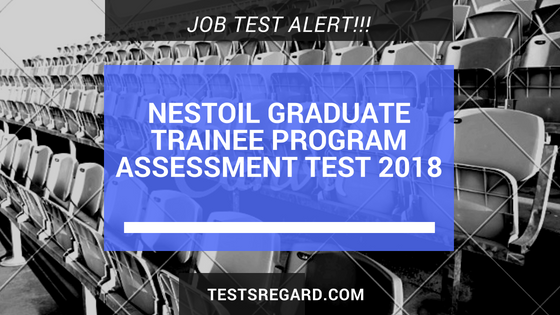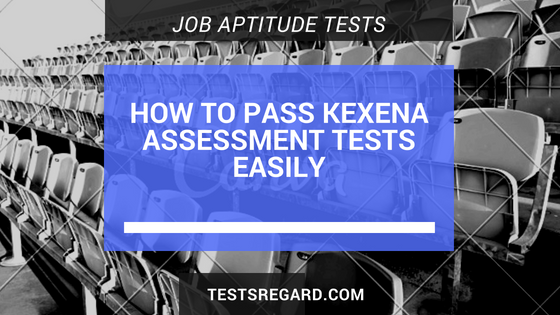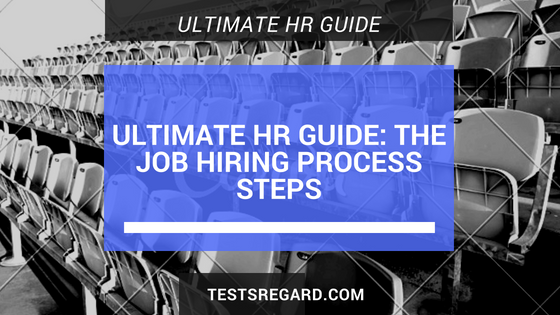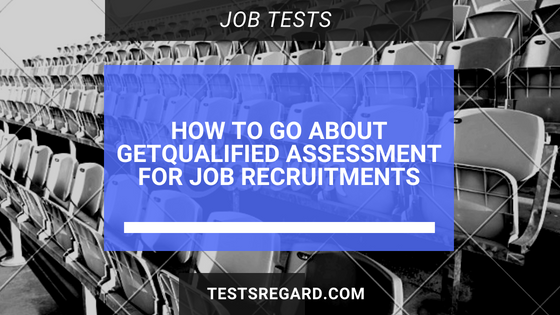81 Biggest Mistakes Nigerian Job Seekers Should Avoid in 2022
Are you a jobseeker? If so, you know how challenging the job market can be, especially if you’re a recent graduate with no experience. It can be difficult to find a new job after finishing university, but it’s not impossible.
One of the tricks is to avoid making mistakes that will cost you the opportunity to land your dream job. In other words, only the applicants with the least mistakes get the jobs. So what are some of the mistakes you should avoid?
Let’s get started!
A. Common Mistakes Job Seekers Should Avoid Before Searching for a Job
1. Not Choosing a career path
Many individuals are desperate for work; thus, they will accept any position that comes their way. Not selecting a profession or selecting the incorrect one may make your job search perplexing.
2. Choosing a career path that doesn’t best fit your interest and skills
If you want to have a more tailored job search, avoid doing these as a job seeker: searching for and applying for random jobs that you come across anywhere. The reason is you will spend time and energy applying for jobs that you are not truly interested in or that don’t match your skills.
3. Failing to prepare for a job search at all
Many job seekers are unaware that looking for work is a job in and of itself. You should ensure that you’ve discovered your career path, created a good CV, and come up with an attention-grabbing cover letter before you start searching and applying for jobs.
B. Common Resume/CV Mistakes Job Seekers Should Avoid
4. Not tailoring your resume for each position you apply for
It’s important to customize your resume before applying for a job, as this will help you stand out from other candidates who may have submitted similar qualifications and experience. You can do this by highlighting the relevant skills and experiences you have that are most relevant to the position and tailoring your resume to reflect the keywords and skills that the employer has listed in the job posting.
5. Failing to proofread your resume/CV carefully
To ensure that your resume is free of grammatical or spelling errors, you should always proofread it carefully before submitting it. Mistakes on your resume can be a major turn-off for employers and can cost you the opportunity to get an interview.
6. Including unnecessary information on your resume
When it comes to your resume, less is more. You should only include information relevant to the position you are applying for, which will help you stand out from other candidates. Information that is not relevant to the job or takes up too much space on your resume should be removed.
7. Failing to highlight your achievements and accomplishments
Your resume should focus on what you have accomplished throughout your career rather than simply listing your job responsibilities and duties. You can include a “Key Achievements” section that highlights your most notable accomplishments.
8. Using a generic or Unprofessional email address
Avoid using unprofessional sounding addresses such as partygirl1234@email.com or goofycatlady@gmail.com. Instead, use your name or a combination of your name and initials to create a professional-sounding email address that potential employers will be more likely to take seriously. This will help to make a good first impression on potential employers.
9. Creating a resume that is too long or too short
Your resume should be long enough to include all relevant information about your qualifications and experience but not so long that it becomes cumbersome to read. A good rule of thumb is to keep your resume to two pages or less.
10. Stating Unproven /Falsifiable Claims in Your Resume
Your resume should always be truthful and accurate, even if you need to leave certain aspects of your qualifications off of it. Failing to do so can result in serious consequences for you as a job seeker, such as being disqualified from consideration for the position or having your resume rejected entirely.
11. Poorly Organized Resume
Your resume should be organized in a clear and easy-to-read format, with each section following logically from the one before it. To ensure that your resume is well-organized, use bullet points to outline your skills and experiences and use headings to break up your resume into sections. Additionally, you may consider using a resume template to help you get started.
12. Outdated Resume
You should always make sure that your resume is up-to-date, as an outdated resume can give the impression that you are not keeping up with the latest trends in your field. To ensure that your resume is current, update it regularly and make sure that you regularly add new skills and experiences to it as they become relevant. Additionally, remove outdated information or skills that are no longer relevant to the position.
13. Stating an objective at the opening of your resume
Including an objective statement at the beginning of your resume is no longer considered best practice. It takes up valuable space on your resume and does not provide employers with information about your qualifications or experience.
According to experts, recruiters have just under 8 minutes to invest in a CV, and you don’t want to waste time with irrelevant information. Instead, you should focus on using the opening section of your resume to highlight your most relevant skills and experiences.
14. Including Salary Expectations on your resume
When applying for a job, you should never include salary expectations in your resume. This is because different employers may be willing to offer different salaries depending on the position and their own needs. Including this information can limit your chances of finding a job or negotiating the best possible pay.
Adding a salary range to your CV can also suggest that you are not interested in the company or the job, only in the money. Instead, you should wait until you are called for an interview to discuss salary expectations.
15. Adding Images or Logos to your resume
If you are not seeking a media or an audition, adding a photo or a symbol to your CV is not always necessary. If they aren’t particularly attractive, including an image on your CV might harm your interests. If you think that a photo might help your offer, make sure that it is a professional headshot taken by a photographer and not just a selfie or a friend’s snapshot.
16. Incorrect Contact Information
One of the most important aspects of your resume is your contact information, as this is how potential employers will be able to get in touch with you about the position. To ensure that your contact information is correct and up-to-date, double-check it for typos or other errors before sending out your resume. Additionally, include multiple methods of contacting you so that employers can reach you easily if they are interested in scheduling an interview.
17. Leaving Unexplained Gaps on Your Resume
If you have taken a significant amount of time off from your career path, it is essential to explain any gaps in employment on your resume. This can be done by briefly explaining why you took time off at the beginning or end of your resume and including relevant details such as volunteer work that you may have done during this time.
Additionally, emphasize any skills or experience you gained during this time off so that potential employers can see how it is relevant to the position.
18. Saving Your CV in Formats other than PDF
When sending your resume to potential employers, it is always best to save it in PDF. This is because this format ensures that your CV will look the same on any computer, regardless of the software that is used to open it. Additionally, PDFs cannot be easily altered, meaning that potential employers can be sure that your CV has not been altered. In contrast, other file formats such as Word documents or JPGs may be susceptible to changes or formatting issues, which can look unprofessional and prevent you from securing a job.
19. Lying on Your Resume
Many job seekers resort to lying on their resumes to impress potential employers. This is one of the worst things you can do when applying for a job. It makes you look unprofessional and can result in you being fired if you are caught. If you are caught lying on your resume, it is impossible to secure another job, as potential employers will not want to hire someone they cannot trust.
20. Including Unrelated Hobbies or Activities
When writing your resume, it is important to be selective about the activities or hobbies that you include at the end. While including these details can help potential employers learn more about you and make you seem like a well-rounded candidate, only include those relevant to the job.
For example, if you are applying for a position at a law firm, there is no need to include that you are a member of your local knitting club. Instead, focus on any leadership roles you have held or any other skills relevant to the position. By doing so, you can make a great first impression on your potential employers.
21. Failure to include keywords
In today’s competitive job market, making your resume stand out is essential. One way to do this is by including keywords in your resume, which are words and phrases commonly used by employers when describing the ideal candidate for a position.
These keywords can include specific skills, qualifications, or job titles you have experience in. For example, if you are applying for a position as a marketing manager, some relevant keywords might be “social media marketing,” “content creation,” or “brand awareness.”
By including these keywords in your resume, you can be sure that employers will immediately see whether or not you are a good fit for the position. Additionally, many Applicant Tracking Systems (ATS) will scan resumes for specific keywords to help employers easily narrow their candidate pool.
To find these keywords, it is important to research the position and company thoroughly and take note of any keywords that come up frequently. Additionally, you can look at job postings for similar positions to get an idea of the commonly used keywords. Once you have a list of keywords, be sure to incorporate them throughout your resume, including the skills section, job descriptions, and cover letter. By doing so, you can be sure that potential employers will give your resume more consideration.
C. Common Cover Letter Mistakes that Jobseekers Make
When writing a cover letter, job seekers often make a few common mistakes. While these mistakes may seem minor, they can impact your ability to land a job.
22. Restating your Resume/CV
Your cover letter should not be a carbon copy of your CV. Your cover letter is your opportunity to demonstrate that you are the ideal applicant for the position.
23. Not Tailoring Your Cover Letter to the Position
When writing your cover letter, it is important to ensure that you are tailoring your content to the specific position you are applying for. In other words, each cover letter that you send should be unique and relevant to the job that you are applying for.
Simply changing the company name and job title is not enough – you need to make sure that the content of your cover letter is relevant to the specific position.
24. Not Taking the Time to Proofread
One of the most important aspects of writing a cover letter is taking the time to proofread your content. Even one small mistake can make you appear unprofessional or careless and cost you the job.
Therefore, it is essential to read your cover letter several times before sending it off to potential employers. Additionally, you can ask a friend or family member to read over your cover letter to make sure that there are no mistakes.
25. Concentrating only on what you want to gain rather than what you want to give
When writing your cover letter, it is important to remember that you are not just trying to sell yourself – you are also trying to show how you can benefit the company you are applying for.
Therefore, instead of focusing only on what you want to gain from the job, make sure that you demonstrate how you can contribute in a meaningful way to the company. For example, if you are applying for a position as a marketing manager, you might want to discuss how your experience and skills can help to increase sales and grow the company.
26. Using a generic template message that is not related to the role you are applying for
When writing your cover letter, it is important to ensure that you are not using a generic template message. Each cover letter should be unique and tailored to the specific position you are applying for.
In other words, do not simply copy and paste a generic cover letter into each job application. This will not only make you appear lazy, but it will also increase the chances that your cover letter will be rejected outright.
27. Writing a long cover letter
When writing your cover letter, it is important to keep things concise and to the point. In most cases, a short and sweet cover letter is preferable to a long and wordy one. Therefore, only include the most relevant information in your cover letter – you do not need to share every detail of your past experience or education.
Additionally, make sure that you are using concise and clear language in your cover letter – this will help keep things brief and easy to read.
28. Adding unnecessary information
Along with keeping your cover letter concise, it is also important to avoid adding unnecessary information. For example, suppose you are applying for a position as an administrative assistant. In that case, there is no need to include your extensive work experience in customer service or retail – this will only make your cover letter longer and more confusing. Instead, focus on the most relevant information and leave any unnecessary details.
29. Forgetting to mention key skills and qualifications
When writing your cover letter, it is important to make sure that you highlight all of the relevant skills and qualifications you have. In other words, do not forget to mention any key skills or experience that you have relevant to the position you are applying for. Additionally, make sure that you use clear and actionable language in your cover letter to demonstrate your skills and abilities.
30. Poor opening lines
Your cover letter should begin with a strong opening line that grabs the reader’s attention and makes them want to read more. In other words, do not simply start your cover letter with “My name is…” or “I am writing to apply for the….” Instead, try to think of an interesting and engaging way to introduce yourself and your qualifications.
31. Failing to show enthusiasm
When writing your cover letter, it is important to come across as enthusiastic about the position you are applying for. In other words, do not simply state that you are interested in the job – make sure that your excitement comes through in your cover letter and that you are showing why you think you would be a good fit for the role.
32. Writing your cover letter too short
Although it is important to keep your cover letter concise, you should also provide enough information about yourself and your qualifications. In other words, do not make your cover letter so short that it fails to give the reader a good sense of who you are and what you can bring to the role.
33. Weak closing lines
Just as your cover letter should have a strong opening line, it should also end with a powerful and effective closing line. In other words, do not simply say “Thank you for your time” or “I look forward to hearing from you.” Instead, try to end your cover letter on a strong and positive note that leaves the reader feeling impressed by you.
34. Failure to name the hiring manager
When sending in your cover letter, make sure that you address it to the correct person. In other words, do not simply say “To Whom It May Concern” – take the time to find out the hiring manager’s name and address your cover letter directly to them.
35. Writing in an unprofessional tone
When writing your cover letter, it is important to maintain a professional and formal tone. In other words, do not use any slang or colloquial terms, and avoid coming across as being too casual or friendly. Instead, focus on being polite and respectful while remaining professional.
36. Speaking ill of previous employers or co-workers
While it is understandable that you may not have had the best experience in your previous jobs, it is important to avoid speaking ill of your previous employers or co-workers. In other words, do not try to paint yourself as a victim and make it sound like the fault lies with others – instead, focus on how you have grown and learned from your previous experiences.
37. Not stating clearly why you want the job
When writing your cover letter, make sure that you include a clear and concise explanation of why you want the job. In other words, do not simply say that you need a job or that you are interested in the company – make sure to explain why you think you would be a good fit for the role and what you can bring to the company.
D. Common Mistakes Job Seekers Make During the Job Application
38. Not following the directions provided in the job posting
When a recruiting firm posts a job opening, it usually provides instructions and directions on how to apply. You must follow every one of these instructions. Not following the procedure might immediately disqualify you from the position.
39. Applying indiscriminately
With the ease of online applications, some job seekers will apply for every opening that matches their skills and experience remotely. This is a mistake. Not only will this give you a bad reputation with employers, but it will also likely lead to more rejection letters. Indiscriminate applications show that you’re not interested in the company or position and just looking for any job.
40. Sending empty mails or mails without subject
An email is the most common way to submit a job application. So, it’s important that you send a well-crafted email with all the necessary information. The employer will likely ignore an empty email or an email without a subject.
41. Attaching file without a note clearly stating that you did
When you upload your resume or other application materials, it’s important to include a clear and direct note explaining what the file contains. Otherwise, employers might not open it or be confused about how to view the information. This mistake can result in your application materials getting overlooked or ignored.
42. Leaving a field empty on the application board
If you are applying on an online platform, it’s important to ensure that you have completed all required fields. Leaving any part of the application blank can result in your file getting rejected or overlooked, so double-check before submitting.
43. Forgetting to attach the correct document
When submitting your application, it’s important to make sure that you have included all required documents. If you forget to attach even one document, it could result in your application getting rejected or ignored. Sending an email without a file attachment and attaching it later might render your application invalid.
44. Not following proper email etiquette
You must follow some regulations to send an official letter. You correctly complete the subject field, offer an accurate introduction in the body of the message, and properly finish it. The firm may also need you to follow certain instructions.
45. Applying for a job that is way out of your league
It can be tempting to apply for a job way above your qualifications, but this is usually a waste of time. You will likely not get the job, and you might also damage your reputation with the company. It’s important to only apply for jobs that you
E. Common Job Interview Mistakes Job Seekers Should Avoid
46. Arriving late to the interview
One of the worst things you can do before an interview is to arrive late. In other words, make sure that you give yourself plenty of time to get to the interview location and aim to arrive at least 30 minutes early.
47. Being under-prepared
It is important to remember that an interview is not simply a conversation – it is a chance for you to sell yourself and your qualifications.
In other words, do not go into an interview without knowing anything about the company or the role you are applying for. Instead, make sure to do your research and come prepared with questions and points that you can make about the company.
48. Not paying attention to dressing
When going into an interview, it is important to make a good first impression with your appearance. In other words, do not wear something that looks unprofessional or sloppy – instead, aim to dress in business-casual attire and make sure that you are looking neat and put-together.
49. Being overly familiar or casual
While it is important to be friendly and personable in an interview setting, you should avoid being overly familiar or casual. In other words, do not try to act like you are already friends with the interviewer – instead, remain professional and formal throughout the conversation.
50. Not being prepared to answer behavioural questions
In many interviews, you may be asked behavioural questions that ask you to give specific examples of how you have handled certain situations in the past. In other words, make sure that you are prepared to answer these types of questions with clear and detailed examples.
51. Not knowing your worth
One of the biggest mistakes that job seekers can make is not being aware of their value or worth in the current job market. In other words, do not sell yourself short or accept a lower salary than you deserve – instead, do your research and be prepared to negotiate for fair and competitive pay.
52. Being overly confident
While it is important to be confident in an interview setting, you should avoid coming across as arrogant or overbearing. In other words, do not try to talk over the interviewer or act like you know everything – instead, focus on being respectful and humble throughout the conversation.
53. Not researching the company
Before going in for an interview, it is important to do your research on the company and what they do. In other words, make sure that you understand the company’s mission, values, and goals, and be prepared to talk about why you think you would be a good fit for the role. Failure to do this research may make you seem like you are not really interested in the job.
54. Taking too long to answer questions
When answering questions during an interview, it is important to be concise and to the point. In other words, do not ramble on or take too long to answer – instead, focus on giving clear and concise answers that address the question directly.
55. Asking about salary, vacation days, etc. too early in the process
Although it is important to know these things eventually, it is best to wait until later on in the process to ask about things like salary, vacation days, etc. In other words, do not bring these things up in the early stages of the interview, as it may make you seem more focused on compensation than on actually getting the job.
56. Giving cliché or generic answers to interview questions
To stand out from the other candidates, it is important to avoid giving cliché or general answers to interview questions. In other words, do not just regurgitate the same old answers that everyone else gives – instead, take the time to think of thoughtful and unique responses that will help you stand out from the crowd.
57. Asking unnecessary personal questions
Even though it’s important to ask questions, avoid asking personal questions that are not relevant to the job or company. In other words, do not ask about things like the interviewer’s family, hobbies, etc. – instead, focus on asking questions that will help you learn more about the job or company.
58. Coming across as too desperate
When interviewing for a job, it is important to avoid coming across as desperate or needy. In other words, do not try to beg for the job or act like you will take any job that is offered to you – instead, focus on being confident and showing that you are genuinely interested in the role. Acting like your life depends on the job will only make you seem less desirable to the employer.
59. Not being honest
One of the worst things you can do in an interview is lying about your qualifications or experience. In other words, do not try to pretend like you know something that you don’t or say that you have experience with something when you don’t. Not only will this likely come back to bite you eventually, but it will also make you seem untrustworthy and unqualified for the job.
60. Inconsistent answers
During an interview, it is important to remain consistent in your answers. In other words, try not to say one thing in response to one question and then say something different in response to a later question. This can make you seem confused or unsure of yourself, which will likely be a red flag for the interviewer.
61. Being on your phone or checking your watch
When you are in an interview, it is important to stay focused on the conversation and avoid being distracted by things like your phone or watch. In other words, do not spend half of the interview looking at your phone or checking the time.
It makes you seem very disengaged and uninterested in the interview. Instead, focus on giving thoughtful and engaging answers that will help you stand
62. Not asking for feedback
After an interview, it can be helpful to ask the interviewer for feedback on your performance. In other words, don’t just sit back and wait to hear if you got the job – instead, ask the interviewer for feedback on how you did. This can help you improve your interviewing skills and make yourself more competitive in future job searches.
63. Failing to ask questions at the end of the interview
When your interview is coming to a close, make sure that you have one or two questions prepared to ask the interviewer. In other words, do not simply say “no questions” – take the time to think about what you are truly interested in learning more about, and use this opportunity to show your genuine interest in the company.
64. Sharing too much information
It is important to avoid sharing too much information about yourself in an interview. In other words, do not tell the interviewer your entire life story or go off on tangents about things that are not relevant to the job. Instead, focus on sharing information that will help the interviewer get to know you better and understand why you are qualified for the role.
65. Poor body language
Your body language can say a lot about you, even if you don’t mean for it to. In other words, be aware of how you are carrying yourself throughout the interview. Avoid crossing your arms or legs, fidgeting, or slouching, as this can make you seem uninterested or uncomfortable. Instead, try to sit up straight and maintain good eye contact with the interviewer to demonstrate confidence and professionalism.
66. Appearing arrogant or rude
In an interview, it is important to avoid coming across as arrogant or rude. In other words, do not talk down to the interviewer or act like you are better than them. This will likely make you seem conceited and unqualified for the job. Instead, try to be respectful and humble in your interactions with the interviewer.
67. Using yes or no answers
When asked a question in an interview, it is important to respond with more than just a simple yes or no. In other words, do not simply say “yes” or “no” when answering questions – instead, take the time to think about your response and give thoughtful answers that will help the interviewer get to know you better.
68. Talking too much or too little
It is important to balance talking too much or too little in an interview. On the one hand, you don’t want to speak for the entire interview and overwhelm the interviewer with information about yourself.
On the other hand, you also don’t want to be silent for the duration of the conversation, as this can make you seem disinterested or unqualified for the job. Instead, try to find a middle ground and share information about yourself concisely and engagingly.
69. Not following up after the interview
Once you have had an interview, it is important to follow up with a thank-you note or email. In other words, do not simply forget about the interview – take the time to thank the interviewer for their time and express your continued interest in the position. This will help you stand out from other candidates and demonstrate your dedication to the job.
F. General Mistakes Job Seekers Make
70. Keeping your job search to yourself
You don’t have to be too personal about your job search; you may get career guidance from people who have already succeeded.
71. Approaching your job search through conventional methods
Job-search techniques have evolved considerably over time. So, going about your job hunt using the traditional method of delivering hard copies of your CV to businesses might not be beneficial any longer.
You may be lucky to get an interview call, but the method is time-consuming, and you will be competing with hundreds of other candidates who’ve applied online. On prominent employment sites, you may search and apply for verified opportunities.
72. Not being open to new possibilities
Today, many job seekers are so focused on landing a specific role that they fail to see opportunities in other fields. If you’re truly passionate about and knowledgeable about a particular area, then, by all means, pursue your dream job. However, if you think changing careers will be good for your career growth, it’s worth exploring new avenues rather than sticking to your comfort zone.
73. Failing to take care of your brand
Your brand is what people think of when they hear your name. It’s the reputation you’ve built for yourself, and it can make or break your career. If you’re not careful, your brand can become tarnished, which will make it difficult to find a job. Make sure you’re mindful of how you present yourself online and offline.
74. Not believing in yourself
If you don’t believe in your abilities, no one else will. It’s important to be confident in your skills and experience if you want to succeed in your job search. Many job seekers give up too easily because they lack confidence. Remember that everyone has different strengths and weaknesses. The key is to focus on your strengths and work on your weaknesses.
75. Giving up too easily
The job search process can be long and arduous, but it’s important to persevere. If you give up too easily, you’ll never find the job you’re looking for. Many job seekers make the mistake of quitting before they even start. They see a job that they think is out of their league and assume they won’t get an interview. But you never know unless you try, so it’s crucial to stay determined and confident throughout the process.
76. Ineffective networking
Networking is one of the most important aspects of the job search process, yet many job seekers don’t do it effectively. They either fail to build a network or only network when they’re looking for a job. Networking should be an ongoing process, not something you only do when you need a favour. If you want to succeed, you need to build strong relationships with the right people.
Networking with the appropriate people can make your job search less stressful and more effective.
>>>Read More: How to Get a Job through Networking
77. Not utilising a variety of resources for the job Search
When searching for a job, it’s important to use a variety of resources to increase your chances of finding the right position. Some job seekers focus solely on their online applications and ignore other methods, such as networking or attending career fairs. However, utilising multiple resources can help you expand your network and find opportunities that might not be available.
78. Not planning your job search effectively
You should plan your search period ahead of time. You should make arrangements for how you will conduct your job search, including the methods and techniques that you’ll use. You’ll probably get more outcomes when you prepare your job hunt carefully. Cover letter, CV, the application process, and so on are all part of planning.
79. Spamming the hiring manager
Spamming your hiring manager is a bad idea, and you should avoid it at all costs. It demonstrates that you are fraudulent and desperate immediately.
80. Applying for jobs you are unqualified for
Although you should never give up on your dreams, you shouldn’t apply for jobs you’re not qualified for. Applying for jobs out of your league is a waste of time and will only lead to frustration. If you want to be successful in your job search, focus on positions that are a good match for your skills and experience.
81. Applying to jobs that are way below your career level
Similarly, you should be careful about applying for jobs too low on the career ladder. Applying to these positions will make you look like a job hopper or someone with no ambition. Instead, focus on advancing in your current role or finding a job at a higher level.
Final Thoughts
Whether you are a new graduate or an experienced professional, it is important to avoid common mistakes during your job search. Avoiding these 81 Mistakes will put you ahead of most job seekers and increase your chances of finding employment.
By focusing on your strengths and networking with the right people, you can improve your chances of finding a job that is a good match for your skills and experience. By planning your search carefully and applying to positions that are a good fit, you can successfully navigate the job search process and land your dream job.












Leave a Reply